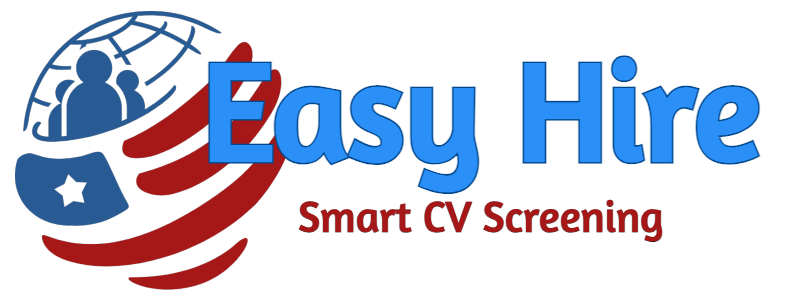The Future of Recruitment: AI and Beyond
Upcoming trends in AI-driven recruitment and hiring technology.
The Future of Recruitment: AI and Beyond
The recruitment landscape is evolving at an unprecedented pace, driven by advancements in artificial intelligence (AI) and innovative hiring technologies. As organizations strive to attract top talent in a competitive market, AI is emerging as a game-changer, transforming how recruiters source, screen, and engage candidates. But what does the future of recruitment look like with AI at its core? This guide dives deep into the growing role of AI in hiring, its benefits, challenges, and the emerging trends shaping the future of recruitment.
What is AI in Recruitment?
AI in recruitment refers to the use of artificial intelligence technologies to automate and optimize hiring processes. From resume screening and candidate matching to chatbots and predictive analytics, AI tools are designed to enhance efficiency, reduce bias, and improve decision-making. By leveraging machine learning algorithms and natural language processing, AI helps recruiters handle large volumes of applications while delivering personalized candidate experiences.
Why is AI in Recruitment Important?
The recruitment industry is facing significant challenges, including talent shortages, time-consuming hiring processes, and unconscious bias. AI addresses these pain points by:
- Automating repetitive tasks: AI-powered tools can sift through thousands of resumes in seconds, saving recruiters valuable time.
- Reducing bias: Algorithms can be designed to focus on skills and qualifications, minimizing human biases in hiring.
- Improving candidate experiences: AI-driven chatbots provide instant responses to candidate queries, enhancing engagement.
According to a report by Grand View Research, the global AI recruitment market is expected to reach $590 billion by 2027, highlighting its growing importance in the hiring ecosystem.
Key Benefits of AI in Recruitment
1. Enhanced Efficiency
AI speeds up time-to-hire by automating manual tasks like resume screening, scheduling interviews, and sending follow-up emails.
2. Improved Candidate Matching
Advanced algorithms analyze candidate data to identify the best fit for a role, ensuring higher-quality hires.
3. Data-Driven Decision Making
AI provides actionable insights through predictive analytics, helping recruiters make informed hiring decisions.
4. Cost Savings
By reducing inefficiencies, AI lowers recruitment costs and minimizes the risk of bad hires.
5. Scalability
AI tools can handle large volumes of applications, making them ideal for high-volume recruitment and global hiring.
Challenges & Misconceptions
1. Fear of Job Replacement
One common misconception is that AI will replace human recruiters. In reality, AI is designed to augment human capabilities, allowing recruiters to focus on strategic and relationship-building tasks.
2. Algorithmic Bias
If not properly designed, AI algorithms can perpetuate existing biases. Organizations must ensure their AI tools are trained on diverse datasets and regularly audited for fairness.
3. Implementation Costs
While AI offers long-term savings, the initial investment in technology and training can be a barrier for some businesses.
How to Implement AI in Your Recruitment Process
1. Identify Pain Points
Start by identifying inefficiencies in your current hiring process, such as slow resume screening or poor candidate engagement.
2. Choose the Right Tools
Invest in AI-powered solutions that align with your needs, such as applicant tracking systems (ATS), chatbots, or predictive analytics platforms.
3. Train Your Team
Ensure your recruitment team understands how to use AI tools effectively and ethically.
4. Monitor & Optimize
Regularly review the performance of your AI tools and make adjustments to improve outcomes.
Future Trends in AI Recruitment
1. Hyper-Personalization
AI will enable recruiters to deliver highly personalized candidate experiences, from tailored job recommendations to bespoke onboarding programs.
2. Virtual Reality (VR) Interviews
VR technology will allow recruiters to conduct immersive interviews, assessing candidates in real-world scenarios.
3. Emotional AI
Tools that analyze facial expressions, tone of voice, and body language will provide deeper insights into candidate behavior and cultural fit.
4. Diversity & Inclusion Focus
AI will play a key role in promoting diversity and inclusion by identifying and mitigating biases in hiring processes.
5. Integration with HR Tech
AI will seamlessly integrate with broader HR technologies, creating a holistic talent management ecosystem.
FAQ Section
Q: Does AI replace human recruiters?
A: No, AI enhances recruitment by automating repetitive tasks, allowing recruiters to focus on strategy and relationship-building.
Q: Can AI eliminate bias in hiring?
A: While AI can reduce bias, it is not foolproof. Organizations must ensure their algorithms are trained on diverse datasets and regularly audited.
Q: What are the costs of implementing AI in recruitment?
A: Initial costs can vary depending on the tools and training required, but AI often delivers long-term cost savings through improved efficiency and reduced hiring risks.
Conclusion & Call to Action
The future of recruitment is undeniably shaped by AI and cutting-edge technology. By embracing these innovations, organizations can streamline their hiring processes, reduce bias, and attract top talent in a competitive market.
Ready to transform your recruitment strategy with AI? Explore future of AI in hiring and take the first step toward the future of recruitment.
